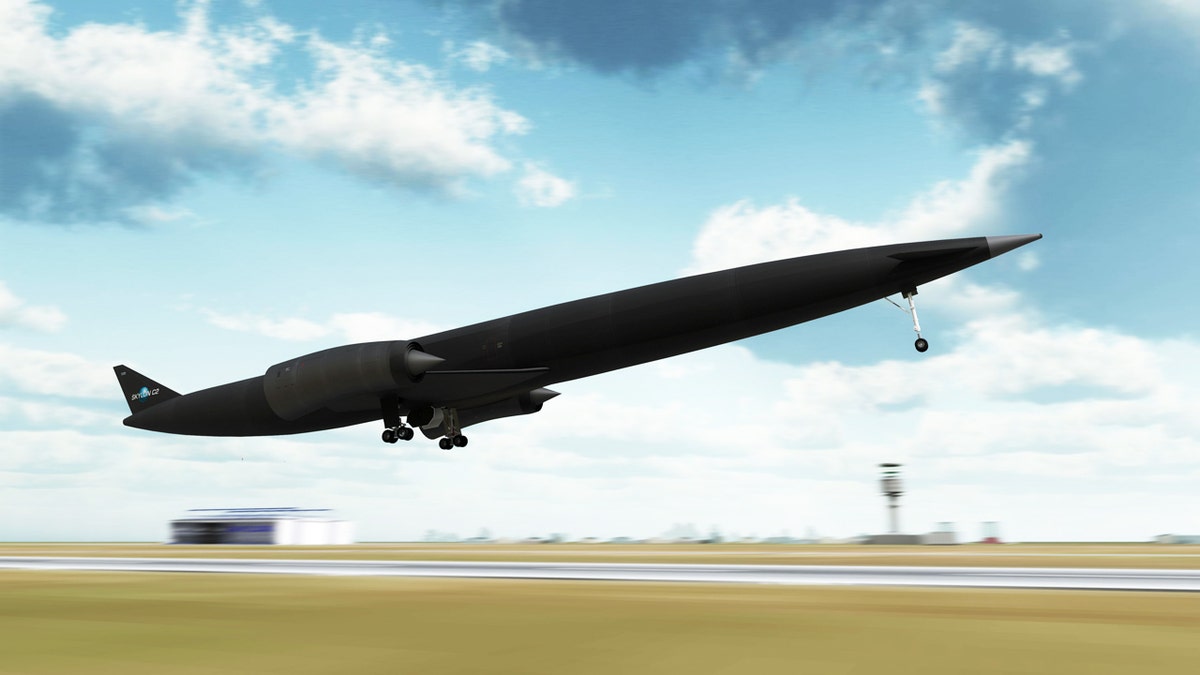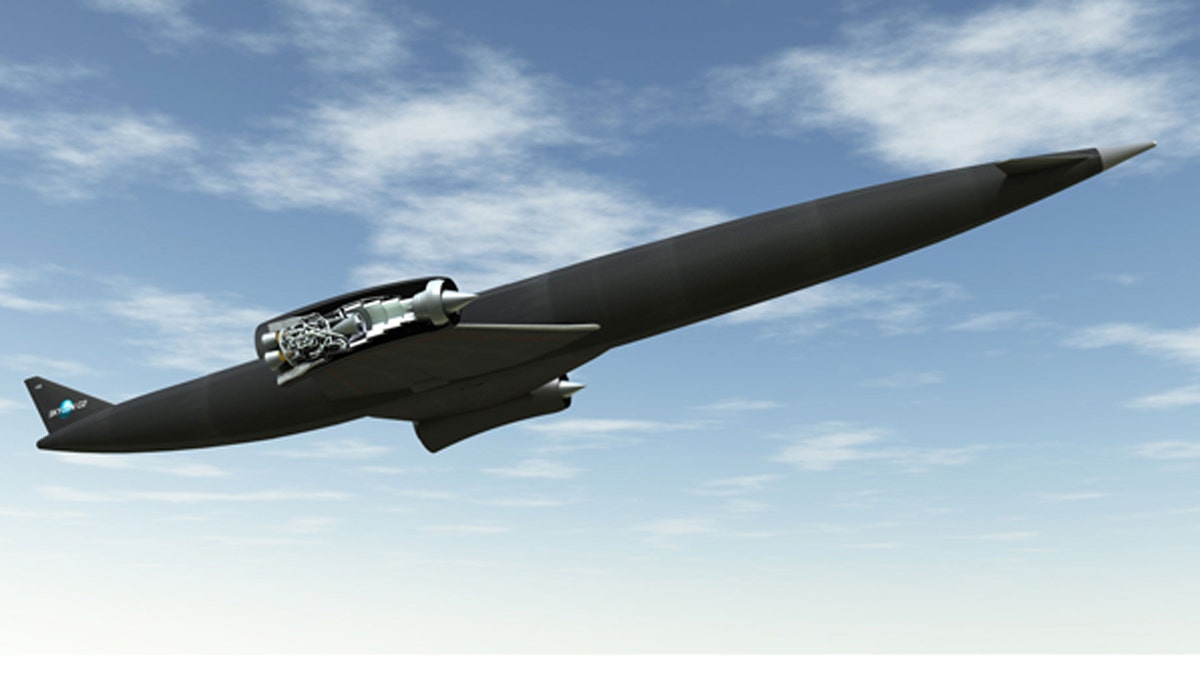
A rendering of the Skylon plane, designed to house the revolutionary new engine. (Reaction Engines)
The 24-hour slog from Sydney to London might soon(ish) be a thing of the past, thanks to the UK government.
The Brits have just pumped £60 million (USD $92.40 million) into a next-generation engine that — its makers claim — will make low-cost space travel possible for commercial customers.
But you and I might not be stepping abroad this super-plane for a while yet. The new ‘Sabre’ engine — a hybrid rocket and jet propulsion system which theoretically allows travel anywhere on Earth in four hours or less — is still at least a decade away, the Independent reported.
A cutaway of the Sabre engine. (Reaction Engines)
But a full ground-based engine test is planned for 2020, it said.
The company behind the jet is Reaction Engines, based in Oxfordshire, and it’s been given the £60 million by the government to help it develop and build the Skylon super-plane.

The Sabre engine revealed in the Skylon plane. (Reaction Engines)
And the big guns in aviation are getting very excited. Aerospace giant BAE has snapped up a 20 per cent slice of the company. BAE and Reaction will form a “working partnership ... to progress towards the demonstration of a ground based engine”, according to the Independent.
So how does it work?
This is where it gets technical. The super-plane will rely on cooling an incoming airstream from 1,832 degrees to minus 302 almost instantly, at close to 1/100th of a second. It will double the technical limits of a jet engine, and allow the craft to reach, up to five times the speed of sound, before switching to a rocket engine to reach orbit.
The Skylon could also slash the cost of launching satellites into orbit, once it gets off the ground.
